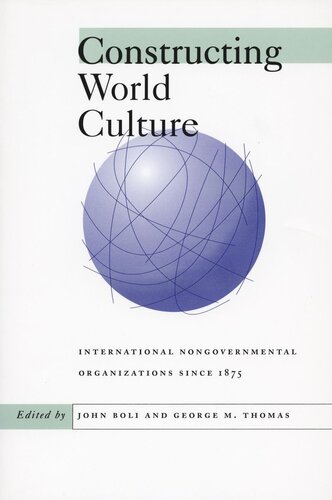

Most ebook files are in PDF format, so you can easily read them using various software such as Foxit Reader or directly on the Google Chrome browser.
Some ebook files are released by publishers in other formats such as .awz, .mobi, .epub, .fb2, etc. You may need to install specific software to read these formats on mobile/PC, such as Calibre.
Please read the tutorial at this link: https://ebookbell.com/faq
We offer FREE conversion to the popular formats you request; however, this may take some time. Therefore, right after payment, please email us, and we will try to provide the service as quickly as possible.
For some exceptional file formats or broken links (if any), please refrain from opening any disputes. Instead, email us first, and we will try to assist within a maximum of 6 hours.
EbookBell Team

4.3
98 reviewsThis book illuminates the central role played by international nongovernmental organizations (INGOs) in the emergence and development of a comprehensive world polity. The contributors argue that the enormous proliferation of INGOs since 1875—including international environmental organizations, human rights groups, bodies formed to regulate technical standards, and economic development organizations, among others—both reflects and contributes to the spread of global institutions and cultural principles based on models of rationality, individualism, progress, and universalism. The contributors contrast this world-polity perspective to other approaches to understanding globalization, including realist and neo-realist analyses in the field of international relations, and world-system theory and interstate competition theory in sociology. The volume considers transnational organizing as a historical process of the creation of global rules and norms, changing over time, that have identifiable effects on social organization at the national and local levels. The chapters provide empirical support for this approach, identifying specific mechanisms that translate global cultural assumptions and prescriptions into local social activity, such as the creation of state agencies, the formulation of government policies, and the emergence of social movements. The first part of the book deals with social movement INGOs, including environmental groups, women’s rights organizations, the Esperanto movement, and the International Red Cross. The second part treats technical and economic bodies, including the International Organization for Standardization, population policy groups, development organizations, and international professional science associations.